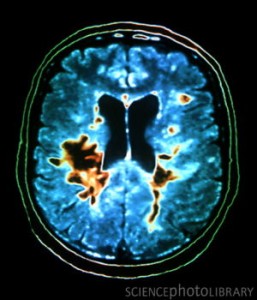The Food and Drug Administration has approved the latest oral therapy for relapsing multiple sclerosis, teriflunomide (Aubagio), but it will carry a strong warning that it increases the risk of fetal harm.
The drug, made by the Genzyme division of Sanofi Aventis, is the second oral tablet approved by the agency for MS. Novartis’ fingolimod (Gilenya) was approved in 2010.
Teriflunomide is the active metabolite of leflunomide, a synthetic, low-molecular-weight drug that was approved by the FDA in 1998 for the treatment of rheumatoid arthritis.
The most common side effects with teriflunomide were diarrhea, abnormal liver tests, nausea, and hair loss, the agency noted in a written statement. The drug will carry a boxed warning on the risk of liver toxicity. Clinicians are being advised to conduct liver function tests before initiating treatment and during therapy.
The warning also will highlight teriflunomide’s increased potential for causing birth defects. Animal studies suggested that the drug is a teratogen. Thus, it is being placed in pregnancy category X, which means that women of childbearing age must have a negative pregnancy test before starting teriflunomide therapy, and also must use effective birth control during treatment.
According to the FDA, the relapse rate for patients taking teriflunomide in trials was 30% lower than for those taking a placebo. Those results were first reported in late 2010 in the Teriflunomide Multiple Sclerosis Oral (TEMSO) trial.
“Multiple sclerosis can impair movement, sensation, and thinking, so it is important to have a variety of treatment options available to patients,” Dr. Russell Katz, director of the Division of Neurology Products in the FDA’s Center for Drug Evaluation and Research, said in a written statement.
“We are greatly encouraged to see a new oral therapeutic option become available to people living with MS,” Dr. Timothy Coetzee, chief research officer at the National Multiple Sclerosis Society, said in a statement provided by Genzyme.
The neurological disorder is thought to affect more than 350,000 Americans, and 2.5 million people worldwide. Symptoms usually begin between ages 20 and 40, and women are affected twice as often as are men. The relapsing phase of the disease is the most common.
Teriflunomide patients will receive a medication guide that outlines the drug’s potential harms.


0 Comments